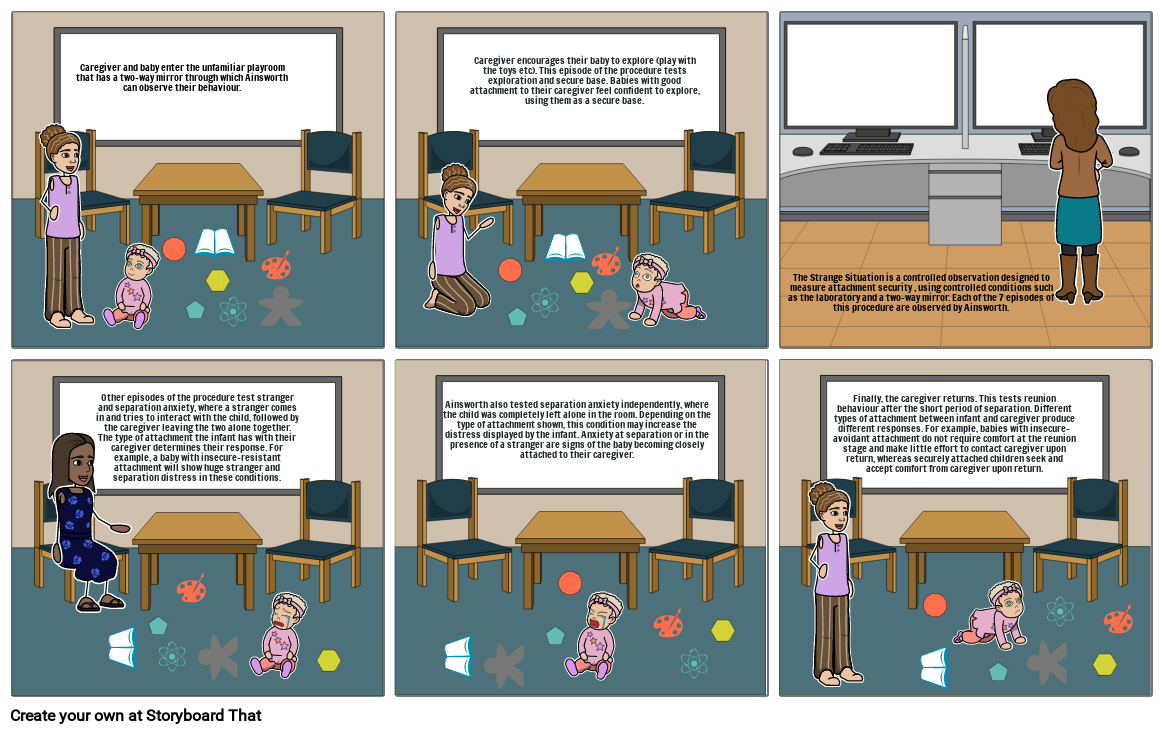Strange Situation

Storyboard Text
- Caregiver and baby enter the unfamiliar playroom that has a two-way mirror through which Ainsworth can observe their behaviour.
- Caregiver encourages their baby to explore (play with the toys etc). This episode of the procedure tests exploration and secure base. Babies with good attachment to their caregiver feel confident to explore, using them as a secure base.
- The Strange Situation is a controlled observation designed to measure attachment security , using controlled conditions such as the laboratory and a two-way mirror. Each of the 7 episodes of this procedure are observed by Ainsworth.
- Other episodes of the procedure test stranger and separation anxiety, where a stranger comes in and tries to interact with the child, followed by the caregiver leaving the two alone together. The type of attachment the infant has with their caregiver determines their response. For example, a baby with insecure-resistant attachment will show huge stranger and separation distress in these conditions.
- Ainsworth also tested separation anxiety independently, where the child was completely left alone in the room. Depending on the type of attachment shown, this condition may increase the distress displayed by the infant. Anxiety at separation or in the presence of a stranger are signs of the baby becoming closely attached to their caregiver.
- Finally, the caregiver returns. This tests reunion behaviour after the short period of separation. Different types of attachment between infant and caregiver produce different responses. For example, babies with insecure-avoidant attachment do not require comfort at the reunion stage and make little effort to contact caregiver upon return, whereas securely attached children seek and accept comfort from caregiver upon return.
Over 30 Million Storyboards Created
No Downloads, No Credit Card, and No Login Needed to Try!
